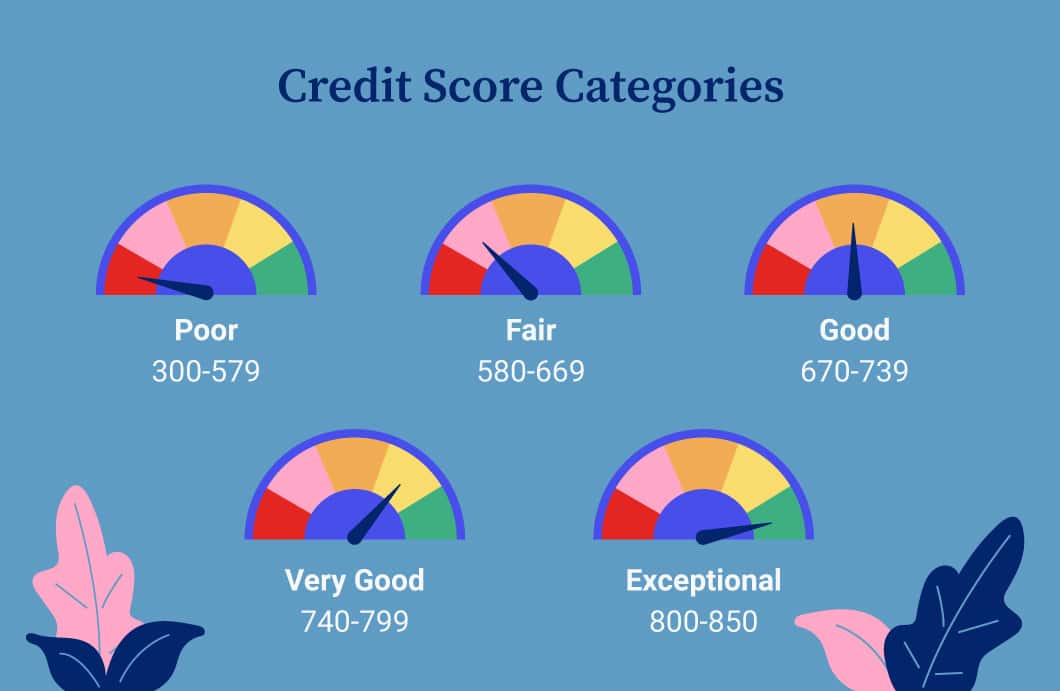Can you get a startup business loan with bad credit or no credit history? The answer is yes. Of course, it’s easier to get a business loan if you have good credit; however, you may still be able to qualify for a loan.
Keep in mind, though, financiers who are willing to lend to you if you have poor credit typically will require you to pay a higher interest rate. Additionally, though you may not need to offer collateral, the lender may require a personal guarantee, blanket lien against the business’s assets or both.
Here’s what you need to know when you’re in search of startup business loans with bad credit or no credit history.
Startup Business Financing Options for Bad Credit
When you have bad credit, it may seem like your financing options are limited, but that’s not the case. Consider the following funding options when you need capital but have a less-than-perfect credit score.
Merchant Cash Advances
A merchant cash advance is an alternative funding solution for startups with bad credit and just a few months in business. Merchant cash advances are commonly offered by online lenders. They can sometimes be issued as quickly as a day after approval.
With this type of financing, a provider gives the borrower a sum of capital, which is lent against a business’s future sales.
Merchant cash advance providers offset their risk by charging higher interest rates, known as factor rates, and requiring more frequent payments over the short term.
Most commonly, a business will repay its advance through daily, or sometimes weekly, payments until the total cash advance and lender fees are paid in full.
Credit Cards
There are credit cards for entrepreneurs with no business credit history. Credit cards are a popular form of financing sought by many business owners. In fact, according to the Federal Reserve Banks’ Small Business Credit Survey, 21% of the businesses polled applied for credit cards. Unsecured credit cards don’t require any deposit, unlike secured credit cards, which do.
Business Lines of Credit
Another option you can try is applying for a business line of credit. Most providers will want to see:
- Minimum credit score of 600-620
- History of repaying loans on time
- Evidence that you’ve been in business for at least 6 months to 1 year for some lenders and generate $100,000-$200,000 in annual revenue
You’ll need documentation to back up your creditworthiness, such as bank statements, financial statements and tax returns.
Invoice Financing
Invoice financing is another short-term funding solution, specifically for business-to-business companies. Businesses use their unpaid invoices as collateral to qualify for funding. Invoice financing providers may offer you capital through a one-time advance or as a line of credit.
With this type of funding, you stay in control of collecting your unpaid accounts receivables from your customers but repay your lender in prearranged installments until your advance is paid in full.
Similarly, if you have customers who owe you money, you may obtain financing through invoice factoring. This arrangement allows you to sell a financial provider your unpaid invoices at a discount in exchange for capital. In this funding solution, they take over collecting your customer receivables for you, and they get repaid when they collect from your customers.
Equipment Loans
Equipment loans fall into a special category because the equipment itself effectively serves as collateral when you’re taking out a loan. That means lenders extending these loans court less risk, which improves your odds of qualifying for financing.
When applying for an equipment loan, you’ll need to provide a quote for the equipment you intend to buy, in addition to the documentation you would use to apply for other loans.
Unsecured Business Loans
An unsecured business loan is one type of startup business loan for bad credit with no collateral requirement. If you’ve been in operation for at least 1 year, you could qualify for an unsecured business loan for your startup.
Unsecured business loans are commonly offered through alternative lenders as short-term loans and often have higher interest rates than other loan types. They also offer less funding than loans for business owners with good credit. That said, they are typically quick to fund and are a good option for business owners who need cash fast and don’t have specific assets to pledge.
With these types of loans, a small business owner’s ability to qualify predominantly rests on business revenue.
Apply for a Business Loan Today!
Have you been operating your business for at least 4 months? You could qualify.
-
What Is Unsecured, No-Collateral Financing?
Startup business loans with no collateral don’t require borrowers to put up assets to secure a loan. In contrast, for secured loans (loans that require collateral), a borrower must offer high-value property to the lender, such as real estate, vehicles or other assets the lender can seize and sell should the borrower default.
What Is Guaranteed Financing?
Additionally, you may come across the term “guaranteed business loans” in your quest for financing. This term refers to loans for which a person or entity pledges responsibility for the debt if the borrower defaults.
Pros and Cons of Startup Business Loans With Bad Credit
Pros:
- Could be easier to qualify for than conventional financing
- May be able to build credit history
- Fast funding is often available
- Funding could be renewed if borrower demonstrates responsible payment history
Cons:
- Higher interest rates than conventional financing
- Personal guarantees are typically necessary
- Financing is often short-term
- Payments are often more frequent (e.g., daily)
-
What Is Considered Bad Credit?
Here is the breakdown of personal FICO credit score ranges, according to Experian.
Where to Find Startup Business Loans With Bad Credit or No Credit
Here are a few providers if you’re a startup business and you’re in search of a business loan.
Accion Opportunity Fund
One of Accion’s mottos is “Support for anyone, no matter your credit score.” The organization offers loans from $5,000-$100,000 with interest rates starting at 5.99%. (They also provide coaching, support and educational resources.
Blue Vine
If you have 6 months in business and a 600 FICO score, you could qualify for a BlueVine business line of credit. To qualify, you’ll need to generate at least $10,000 in monthly revenue. BlueVine is accredited by the Better Business Bureau (BBB), where it’s earned an A+ rating. It also has a 4.4-rating on Trustpilot.
Lendio
Reportedly, Lendio offers financing to startup businesses with at least a 560 credit score and 6 months in business. This lender has a 4.7-star Trustpilot rating and a 4.3-star rating on Facebook. It’s also A+ rated with the BBB, where it’s earned the organization’s accreditation.
Startup Business Financing Alternatives
In addition to business startup loans for people with bad credit, there are other options to fund your capital needs. Here are a few alternatives.
Business Grants
Even if you don’t have a good credit rating, you can still qualify for business grants. This is a great option when you’re on the hunt for small business loans for bad credit startup funds. Unlike loans, grants don’t need to be repaid.
Government agencies and private institutions award grants based on factors such as need or merit. You may qualify for a grant if you fall into an economically disadvantaged category or if your business boasts innovative potential.
You’ll need to research to find a grant you’re eligible for. Also, you’ll need to submit whatever grant proposal package your particular grant requires. This typically includes submitting a business plan.
Related: Small Business Grants
Friends or Family
When you’re wondering how to get a startup business loan with bad credit, the truth is, some entrepreneurs seek help from friends or family. However, you want to make sure you can pay them back. They are your kin, after all.
You’ll stand a better chance of convincing friends and family to lend you money if you can show them a business plan explaining how you’ll generate enough revenue to pay them back.
They might be more inclined to lend you money if you sign an agreement promising to pay them back within a specified time — just as you would with a regular lender.
Crowdfunding
Crowdfunding sites (e.g., Kickstarter, IndieGoGo) are another alternative when it comes to microloans for startup businesses with bad credit. These websites allow you to post about your business publicly to solicit support from online contributors.
These funding platforms vary, with some relying on the goodwill of your audience to persuade them to contribute. Others offer contributors equity or function as peer-to-peer lending networks.
To run a successful crowdfunding campaign, you’ll want to compare sites to find the right platform for your business. You’ll then need a compelling story and persuasive pitch that makes your audience want to help you. A video can often make your pitch more emotionally engaging.
Other Startup Business Loans If Credit Improves (No Collateral Required)
If you’re able to get your credit up, you could be able to get approved for better rates and terms as well as qualify for more options. Here are a few.
General Startup Loans for Entrepreneurs
SBA Loans
SBA loans are the most popular type of government loan for starting a business. While most SBA funding options do require some collateral, lenders are not required to take collateral for certain loans of less than $25,000 (i.e., SBA 7(a) and Express loans).
To qualify for an SBA loan, you’ll need:
- A sound business plan, including a financial plan that demonstrates your long-term ability to repay your loan
- To qualify as a small business (in terms of how many employees you have and how much revenue you make)
- To operate a for-profit venture in the U.S. or its territories
- Be unable to qualify for loans from other lenders
You’ll have the best chance to secure a loan from SBA lenders if your personal FICO credit score is 700 or more, which is considered “good,” although a lower score won’t necessarily disqualify you.
Startup Business Loans for Women
As U.S. businesses run by women continue to rise, the SBA and some conventional and alternative lenders offer business loans to help female business owners succeed.
SBA loans are long-term loans and more accessible for those with solid credit. Women with lower credit ratings or who need loans quickly may find more luck with sites that offer online business loans for startups. Microloans are an option for women entrepreneurs who can’t qualify for larger loans or don’t need as much capital.
Examples of organizations offering financing opportunities and assistance to women business owners include the Association of Women’s Business Centers and the SBA’s Office of Women’s Business Ownership.
Small Business Startup Loans for Minorities
As a minority business owner, you may be able to increase your chances of qualifying for an SBA-backed loan by participating in the SBA 8(a) business development program, which is geared toward leveling the playing field for “small disadvantaged businesses,” according to the agency.
Some lenders and institutions provide loan and financing opportunities for specific minority groups. For instance, the Department of the Interior’s Indian Affairs bureau has a Division of Capital Investment to promote access to funding for tribes and individuals. NMSDC Business Consortium Fund is another organization that helps startup minority businesses access capital.
Ready to Get a Startup Business Loan With Bad Credit?
If you’re just starting a business, be sure to consider all of your options for startup financing. Even if you have poor credit or lack collateral, there are still plenty of financing opportunities available. Find the financial resources your business needs to succeed.












